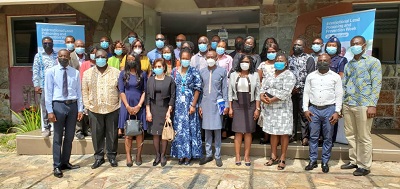
Foulty Health and Environmental experts from 15 regulatory bodies have begun a stakeholder workshop to adopt a common platform to eliminate lead poisoning among Ghanaian children.
The participants arefrom the Ghana Revenue Authority, the Plants Regulatory Authority, the Ghana Standards Authority, the Environmental Protection Agency, the Civil Society Organisations, Religious Bodies and the Crops Information Services.
They are also expected to identify document gaps in relevant policies, legislation and strategic plans in order to recommend sector specific actions that will be required to address those gaps.
The event dubbed “Protecting Every Child Potential (PECP)” instituted by Pure Earth, a Non-Governmental Organisation (NGO), UNICEF and Clarios Foundation three years ago to draw the world’s attention to children’s exposure to lead.
The Director General, Ghana Health Service, Dr Patrick Kuma-Aboagye in a speech read on his behalf called for an urgent need to support public health structures in order to identify, plan, prepare and respond to events and disasters in order to mitigate risks and protecting lives.
According to him, since Ghana has signed on to multilateral environmental agreements,there was the need to integrate efforts of all sectorsto control various aspects of life cycle of lead and other heavy metals.
Dr Kuma-Aboagye stated that though the GHS was working effectively to deal with environmental related health conditions, it had no established services for the prevention, diagnosis and management of lead poisoning at its facilities.
He said laboratories at the health services and teaching hospitals do not have the facilities to carry out toxicological testing for local and other heavy metals explaining that previous activities had only been on ad-hoc basis and urged for quick action to address the situation.
The UNICEF Deputy Country Representative, Fiachra Mcasey said lead is a silent killer and a highly poisonous element that has a lot of health implications.
She said even though lead poisoning may be documented in the country, it was a serious health concern, adding that “paint still constitutes a source of exposure affecting pregnant women and children as they are among the most vulnerable because any child that scavenges daily for metal scraps or used acid lorry batteries is most at risk.
She assured that UNICEF would continue to work with the GHS through multi-stakeholder approach with Municipal and Districts Assemblies, businesses, academia, United Nations and civil society to address emerging health crises caused by lead exposure.
Mr Lovelace Sarpong of the Factories Inspectorate of the EPA, said lead poisoning had been attributed to millions of death in the world and called for urgent action to address the situation.
The programmes manager of occupational and environmental health unit of the GHS, Dr Carl Osei said the workshop forms part of the international lead poisoning prevention week which is being marked on the theme: “Working together for a world without lead paint”
The Country Director of Pure Earth, Ms Elsie Appeadu, in her submission said her outfit had already trained field investigators who would conduct country assessment on lead exposure and urged participants to take advantage of the programme and propose measures to help address the situation.
FROM
MR LAWRENCE VOMAFA-AKPALU, ABURI







